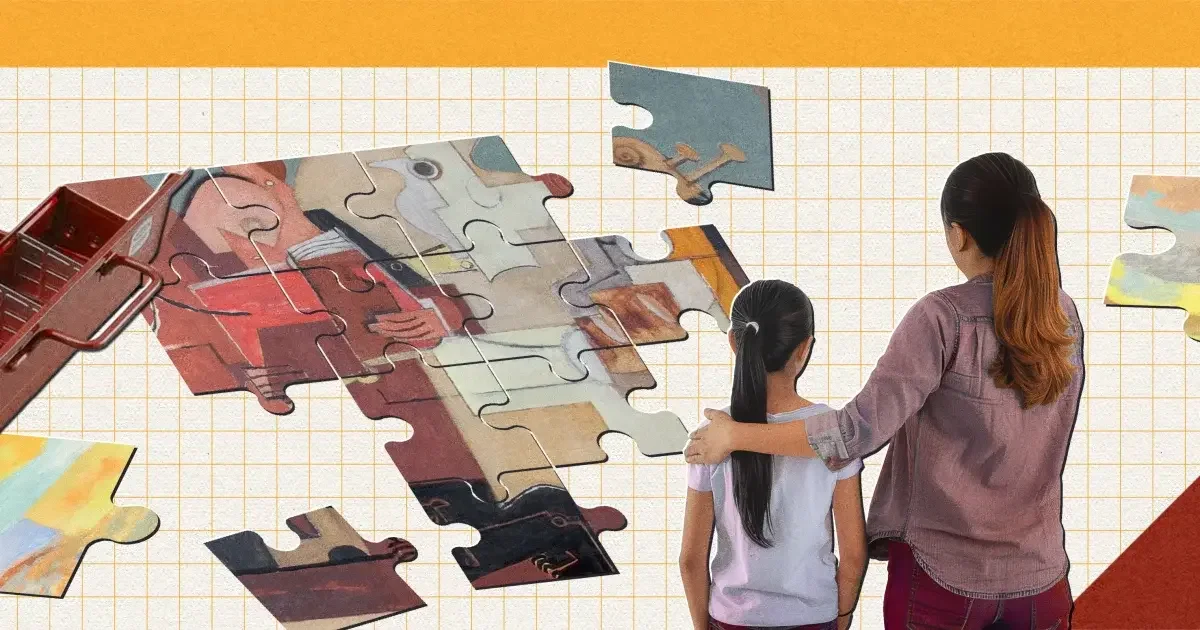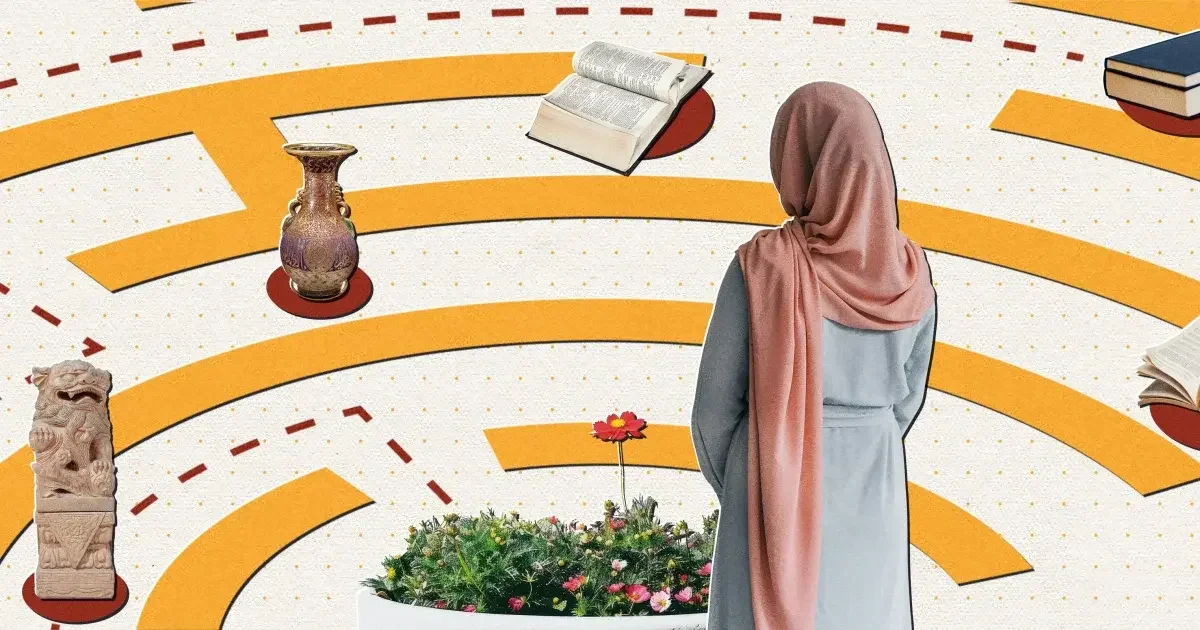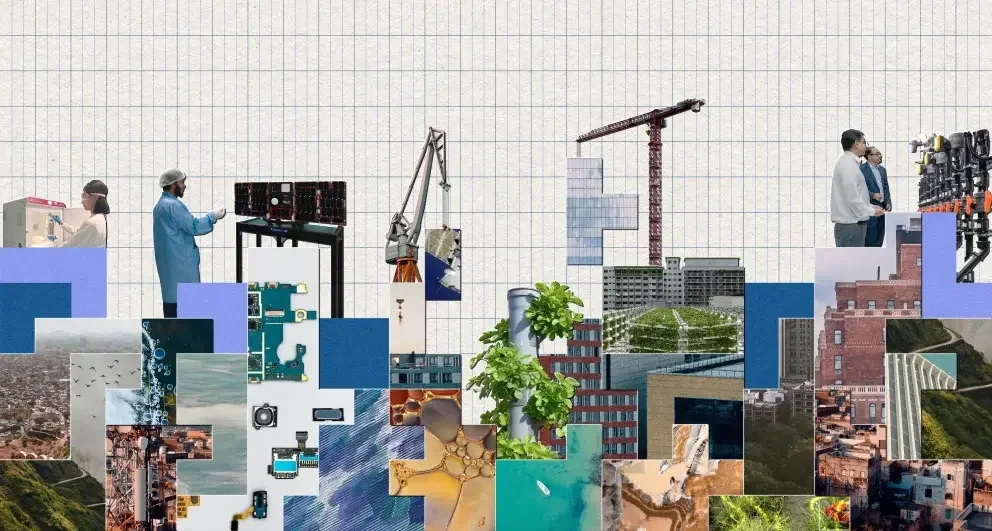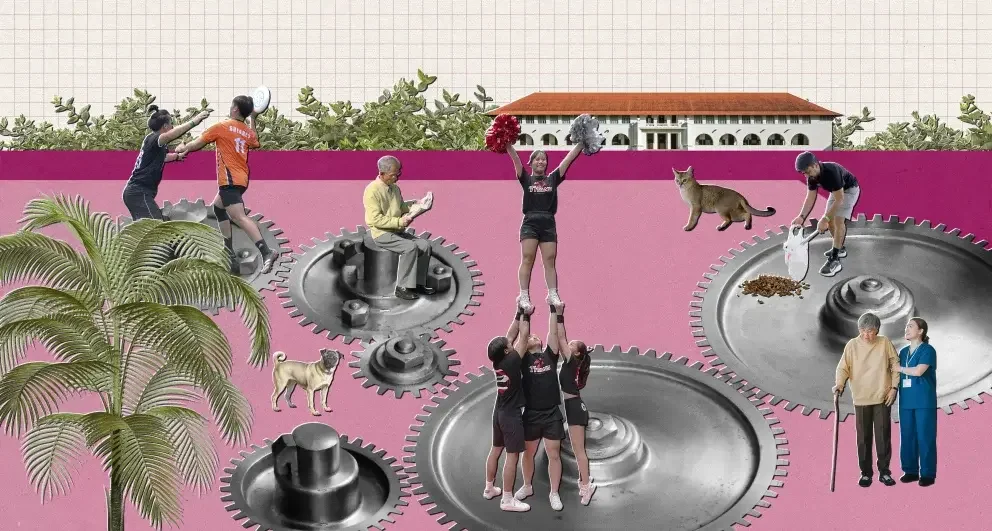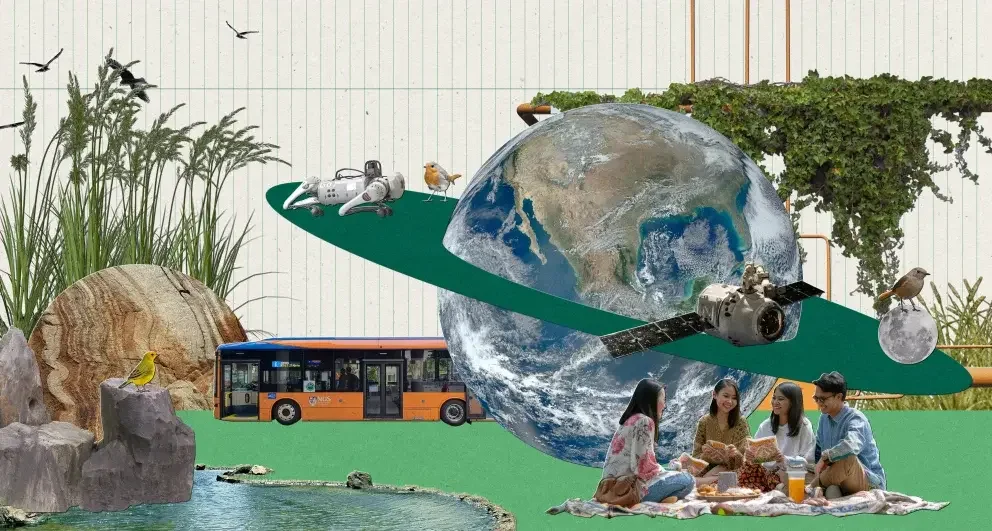

Shaping Future Talent
Nurturing future-ready talent
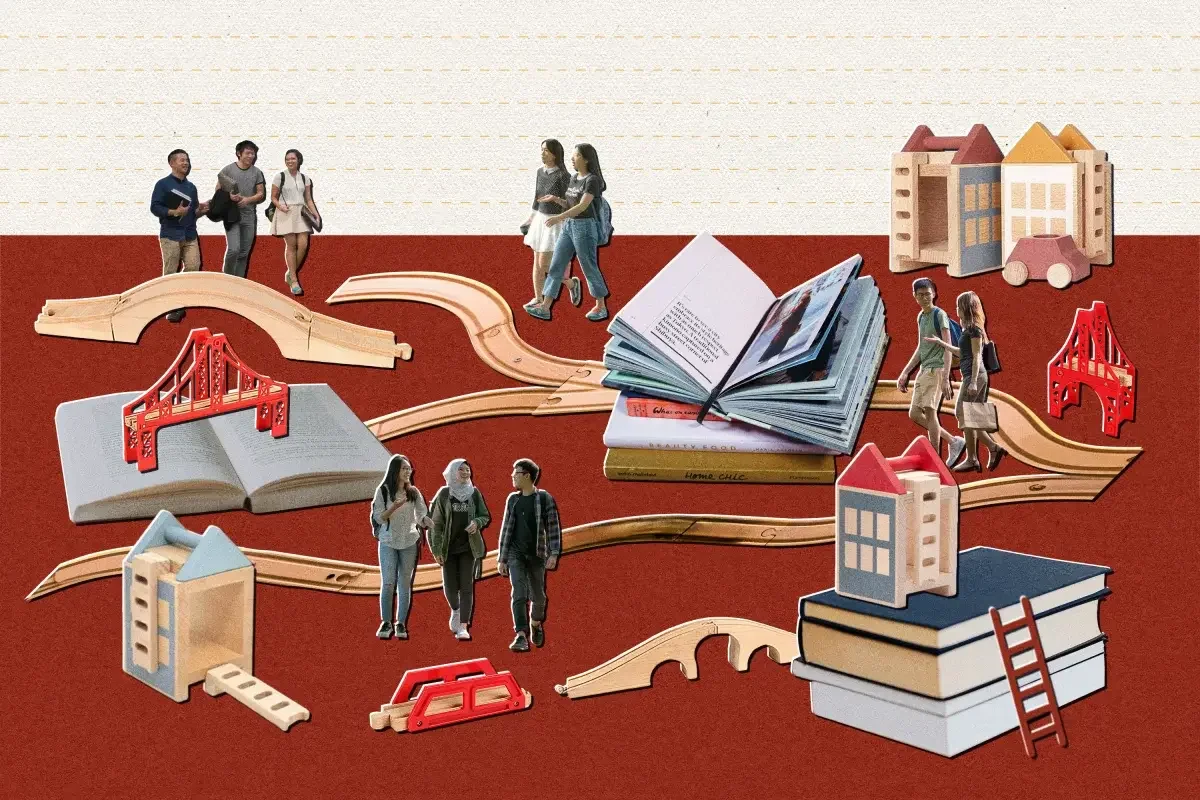
Our approach to our core mission—to educate—has been honed over time, and will continue to evolve.
We have created a unique educational experience that continually yields strong graduate outcomes: NUS graduates are rated highly in the world for employability, and command a strong—and rising—employment rate and wage premium.
More importantly, they emerge as well-rounded individuals through experiencing global exposure, a rich student life, and rigorous interdisciplinary thinking.
Service learning rounds out the educational journey. In getting students involved in community engagement projects and addressing important social causes, we seek to nurture individuals who have the skills, knowledge and heart to make a difference.
Graduate outcomes on the rise
UNDERGRADUATE ENROLMENT
31,625 undergraduates enrolled in NUS each year:
> 40 %, the largest share
of total university enrolment in Singapore.1

GLOBAL EMPLOYABILITY
NUS graduates are ranked
9th in global employability
improving five places since 2019, joining the ranks of Harvard University, the University of Oxford and the University of Tokyo.2

EMPLOYMENT RATE
9 in 10
of our graduates find employment within six months of graduation.3

WAGE PREMIUM
Fresh NUS graduates in full-time positions
earn 9 % more
than graduates from other local autonomous universities.4

1
Annual average, Academic Year 2018–2022
2
Global Employability University Ranking and Survey 2023
3
Joint Autonomous Universities Graduate Employment Survey 2023
4
Joint Autonomous Universities Graduate Employment Survey 2023
Nurturing well-rounded individuals: The undergraduate experience
INTERDISCIPLINARY EDUCATION
8 in 10
students are enrolled in an interdisciplinary college.5

SERVICE LEARNING
100 %
of our students have engaged in service learning as part of their curriculum, learning about social issues while working with community partners to advance social services and community building.6

HOLISTIC DEVELOPMENT
Nearly
1 in 3
students live on campus for at least a year, experiencing a unique blend of academic, co-curricular and social activities for holistic development.7 Our aim is to afford every student the opportunity to live on campus.

GLOBAL OPPORTUNITIES
1 in 2
students venture abroad at least once during their time at NUS.8

5
Academic Year 2023
6
Since Academic Year 2021/2022
7
Annual average, Academic Year 2018–2022
8
Annual average of graduating cohorts from 2019 to 2021; 2022 and 2023 cohorts excluded as they were most impacted by pandemic travel restrictions

“My student exchange experience in Canada and the e-STEER Sub-Saharan Africa programme made me realise how small we are compared to the rest of the world; there are so many cultures, experiences, lifestyles and stories to learn. I now view the world through a more inquisitive lens, and am a lot more empathetic to the social issues different places face.”
Tan Shin Yee, Clairene
Faculty of Arts and Social Sciences
5
Academic Year 2023
6
Since Academic Year 2021/2022
7
Annual average, Academic Year 2018–2022
8
Annual average of graduating cohorts from 2019 to 2021; 2022 and 2023 cohorts excluded as they were most impacted by pandemic travel restrictions
Promoting health and wellbeing
With the formation of a Health and Wellbeing unit in 2020, the rolling out of mental wellness campaigns, and increasing avenues for support, awareness and accessibility has improved.
RAISING AWARENESS
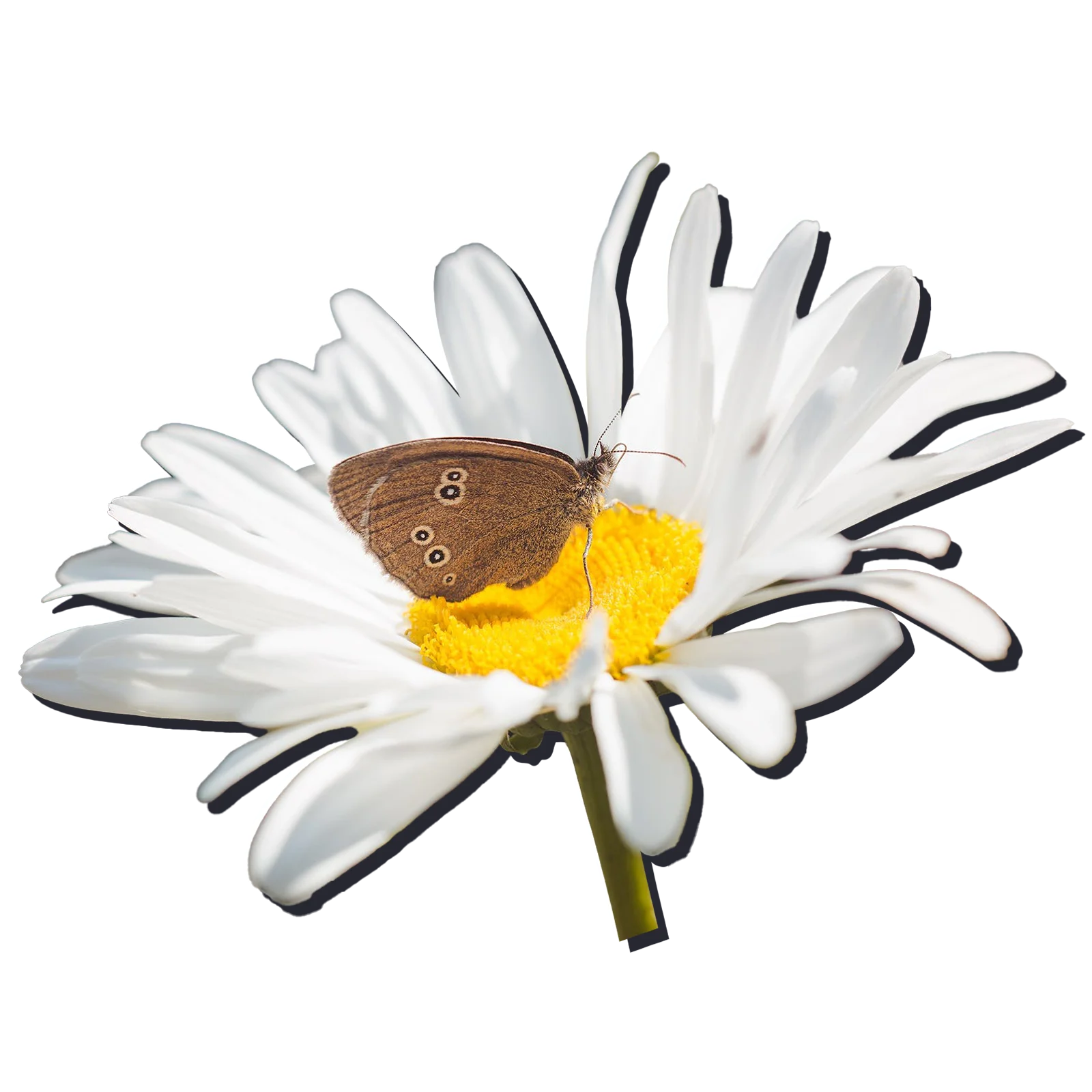
Students report
lower levels of stigma
and social distancing from conditions of depression, or those with depression.
IMPROVING ACCESS

Average wait time for counselling sessions has
more than halved
from 2022 to 2023, at 7.7 days in 2023.
OUR IMPACT, IN DEPTH
Moulding lives through mentorship
Celest Chiam’s journey with Teach SG was one measured by incremental gains and unexpected rewards. To the medical student, her progress in mentoring secondary school students was defined by the tiny things—one mentee slowly opening up, another mentee finally passing math.
Celest (pictured below) had joined the programme, which equips NUS students with the resources, funding, and skills to mentor disadvantaged children and youth, in hopes of giving back. “My group members and I recognised that we were extremely privileged and were able to receive many opportunities when we were younger. We wanted to pay it forward,” she said.
Celest and her team planned for the sessions meticulously, using a two-pronged approach involving academic coaching and interactive sessions. Teach SG’s role: providing the support and resources they needed. Besides being trained in coaching and mentoring skills, volunteers are also provided with a toolkit which includes resources like instructional materials, budgeting guides, and survey templates.
“Besides providing us with funding for teaching and activity materials, Teach SG also helped us search for beneficiaries to work with and provided us with feedback on our activities. The encouragement and feedback loop helped us continuously improve our project,” Celest added.
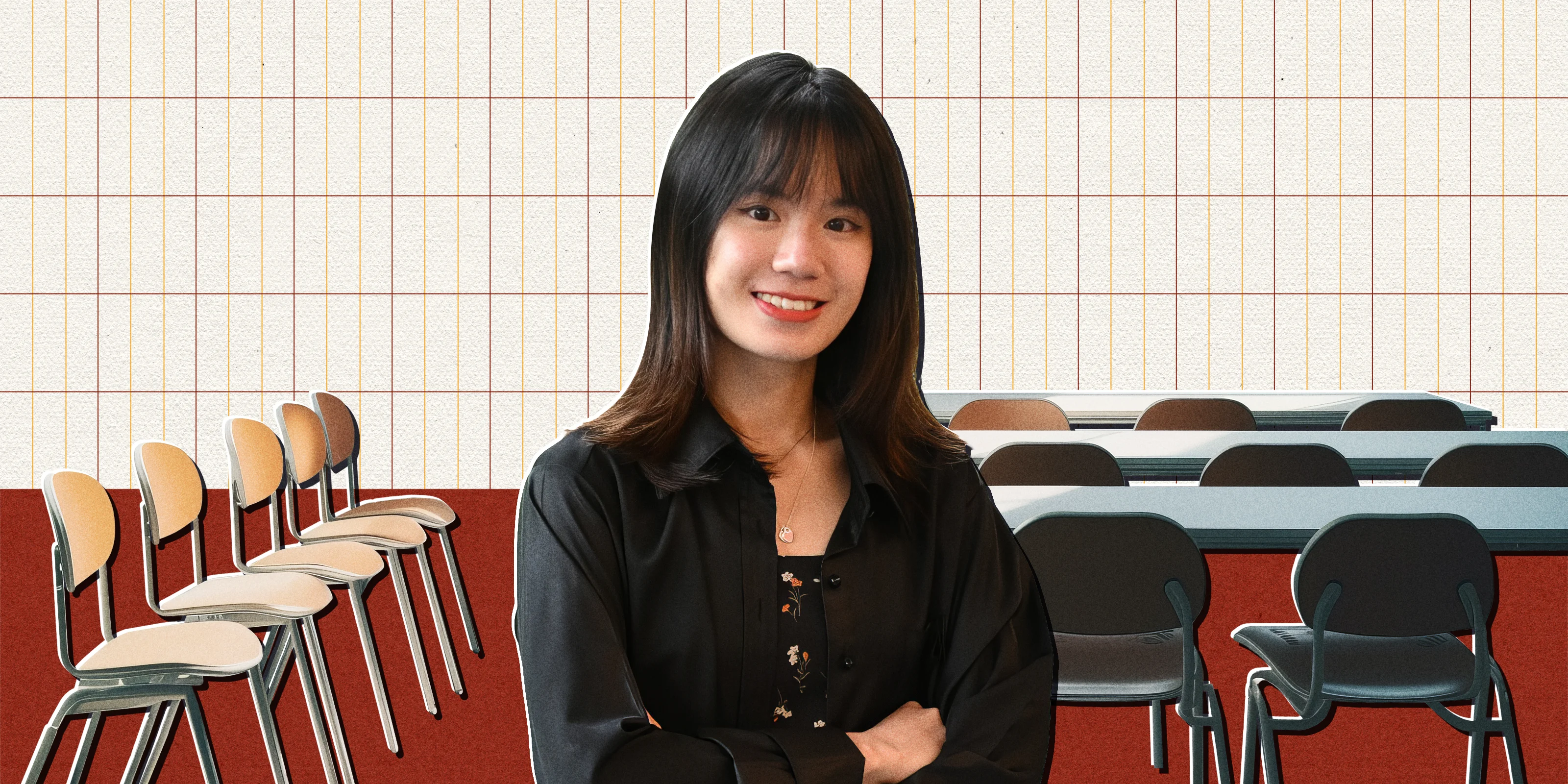
This process slowly bore fruit amongst Celest’s mentees. A mentee, Isabella Aw, shared, “Celest and I have regular conversations and I like having someone whom I can relate to. After spending time with her, I started taking my studies seriously. She motivated me to come to the mentoring sessions and pursue my dreams of becoming a psychiatrist.”
Piloted in early 2021, Teach SG was guided not only by the NUS community’s aspiration to give back to society, but also by a consensus to increase students’ social consciousness.
“Children and youths from lower income households may not enjoy a level-playing field due to various challenges,” said NUS President Professor Tan Eng Chye.
“We started Teach SG… to give them a better head start in life by bridging learning gaps, building character, developing good study habits, and inspiring them towards attaining tertiary education in the future. Furthermore, it will seed positive social responsibility in NUS students while giving back to society.”
In the span of three years, Teach SG has empowered nearly 1,650 NUS students to mentor 3,600 beneficiaries. It has also been made available as a practicum under the Communities and Engagement Pillar within the General Education curriculum, taken by all undergraduates. The Communities and Engagement Pillar engages students in addressing issues such as inequality and poverty.
“My experience with Teach SG has taught me that there is so much joy in giving, and I have been motivated by my mentees’ eagerness to learn and positive attitude to learning.”
—Celest Chiam
Teach SG mentor
Developing lifelong learners

We are committed to embracing learning as a lifelong endeavour.
From the point a student is admitted for undergraduate or postgraduate studies at NUS, he is enrolled for 20 years and beyond—and is automatically eligible for continuing education courses after he graduates, and well into his career.
Our lifelong learning offerings run the gamut, and are nimbly attuned to the global economy’s demands. Specialised pathways exist in the form of graduate programmes: doctoral degrees, master’s degrees and graduate diplomas.
On the other end are a wide variety of short courses, career transition and conversion programmes, and certificates that can be stacked towards higher qualifications. These seek to meet learners at different stages of their lives and careers, and to ensure that learning is always within their reach.
Continuing education at NUS
GRADUATE ENROLMENT
A steadily increasing proportion of those enrolled in graduate programmes find these programmes beneficial to their careers.10
Graduate enrolment has increased by 50% over the past five years, with a total of
42,757
people enrolled in graduate programmes.9
CAREER RELEVANCE
Nearly
80 %
of postgraduates indicate that their career is still related to their graduate research, three to six years after graduation.11

LIFELONG LEARNING FOR ALL
Besides our graduate programmes, we provided over
175,000
people across NUS and Singapore with continuing education opportunities in the last five years.12


“Having worked in the insurance field for years, I knew that its future lay in digital insurance and wanted to advance my career by upskilling in that area. I chanced upon a digital transformation course at NUS, which gave me the confidence, knowledge and skills to work with new tools and frameworks, which I now frequently use to formulate and drive digital business strategy. I also learnt how to leverage digital technologies to streamline processes and meet both our business goals, as well as customers’ needs, better.”
Lynette Keh Siew Ling, 55
Graduate of the NUS Digital Transformation Programme (2022/2023)
9
Academic Year 2018–2022. Refers to doctoral degrees, master’s degrees (by coursework) and graduate diplomas.
10
Post-Graduate by Coursework Employment Survey 2022
11
NUS Longitudinal Postgraduate Survey 2022 of graduates from Academic Year 2013–2017
12
Academic Year 2018–2022. Refers to short courses, career transition and conversion programmes, and professional, executive and graduate certificates.
OUR IMPACT, IN DEPTH
Fulfilling a long-held dream
Nurulhuda Binte Mail always held aspirations to gain a deeper understanding of the intricacies of human nature, societies and cultures, knowing it would enrich her career and personal life. For almost two decades, her ambition to pursue a degree in this area took a backseat until 2022, when a life-altering medical emergency forced her to re-evaluate her priorities. This spurred her to apply for a degree course through Advance@NUS, an admissions pathway for adult learners.
Launched in 2020, Advance@NUS allows working adults to be admitted into full-time undergraduate programmes based on their work experience, granting candidates the opportunity to earn their first Bachelor’s degree.
Now in her late 30s, Nurul is a first-year anthropology major at NUS’ Faculty of Arts and Social Sciences studying alongside her Gen Z peers. Her initial misgivings about attending university as a mature student have been assuaged by the strong support of her classmates and professors. She has gained a “profoundly enriching experience” through her studies, and has also realised that her wealth of real-world experience grants her a unique vantage point in her field of study.
“On a personal level, I hope to become a good role model for my nephews and nieces, showing them that it’s never too late to learn or pursue their dreams… In time, I hope to harness the knowledge I’ve gained to make meaningful contributions to society.”
—Nurulhuda Binte Mail
Faculty of Arts and Social Sciences
Empowering our staff
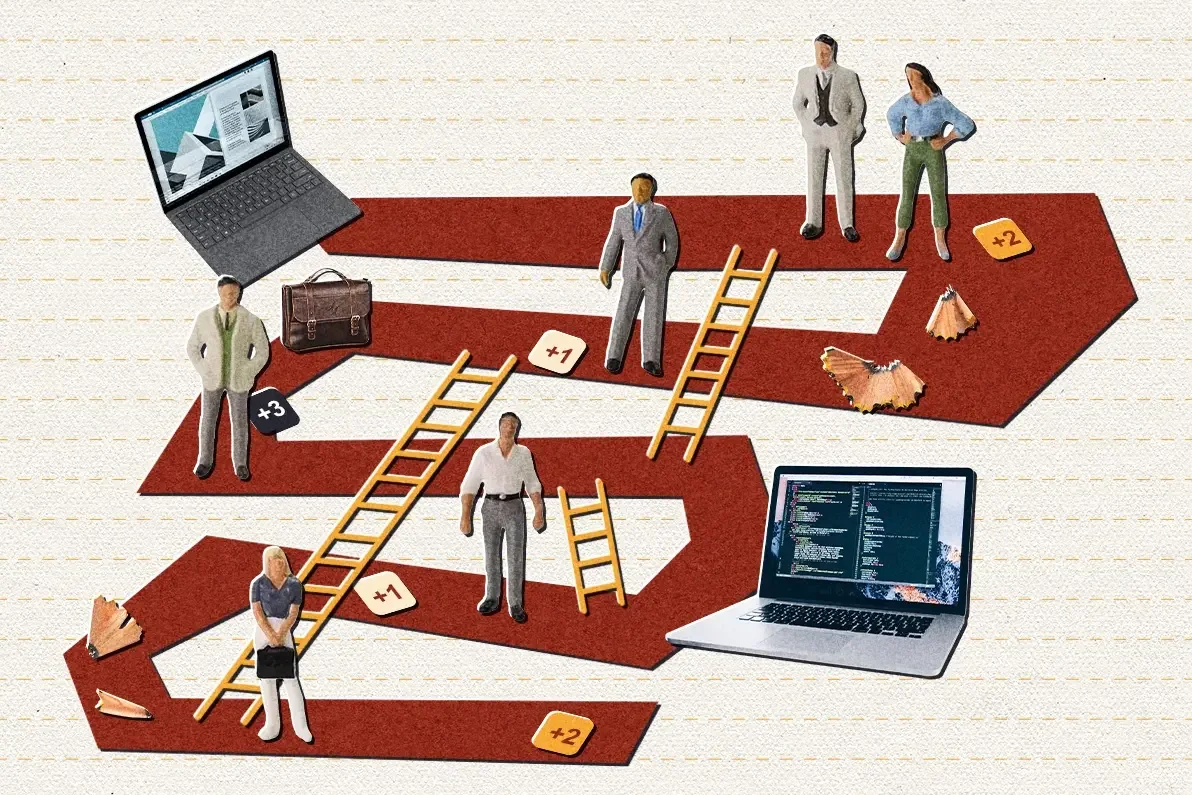
Our staff contribute immeasurably to our impact. To ensure they remain skilled and competent in the face of the changing nature of work, we have developed a talent competency framework, supporting their learning and development so they can adapt and thrive amid a volatile environment.
Between 2020 and 2021, we launched the Data Literacy Programme and the Artificial Intelligence Competency Course, first-of-its-kind initiatives that are part of a holistic employee development roadmap. Almost all of our executive and administrative staff have since completed foundational training in these areas.
With enhanced staff support for deep skilling and personal development—such as our Skills Transformation Fund for continuing education and training, and the new bond-free NUS Master’s Sponsorship staff scheme that fully funds part-time Master’s programmes—we have seen a fourfold increase in the number of executive and administrative staff who have completed professional training in the last five years.
Staff learning and development
91% of our 5,290 executive and administrative staff have completed professional training in data literacy and artificial intelligence.13
“Attending the Data Literacy Programme was a highly beneficial experience for me. The knowledge I acquired on how to effectively manage and interpret data has proven invaluable, especially in today’s data-driven age. I gained practical tips from the instructors, from simplifying data presentations to extracting useful insights from data, all of which are indispensable in my work, which focuses on audience insights and analysis. The course was so beneficial to me that I volunteered to take the advanced course to learn more.”
Mariana Fitriany Sahaimi
Deputy Director, Office of University Communications
More than 1,000 executive and administrative staff members took up tuition assistance for degree programmes in the past five years.14

“In the course of my work, I have grown to become passionate about the ways we can use data-backed communication strategies to inform and shape narratives, and I look forward to contributing in that manner as I progress through my studies, and beyond. I urge fellow colleagues to consider the myriad ways they can upskill in NUS and join me in the further pursuit of knowledge.”
Bell Yeo
Assistant Senior Manager, Office of Student Affairs,
Master of Social Sciences (Communication) ‘24, recipient of the NUS Master’s Sponsorship
13
As at Financial Year 2022
14
Academic Year 2018–2022

